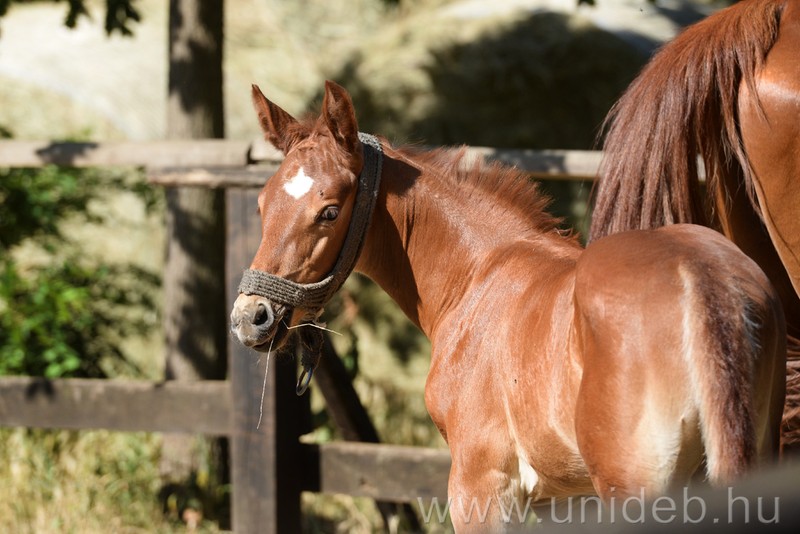Eleven foals have already been born this year in the framework of the national gene conservation program at the DE Agricultural Research Institutes and Tangazdaság Kismacsi Animal Breeding Experimental Site.
The gene bank of the Agrarian Research Institutes and Agricultural Research Institutes (AKIT) of the University of Debrecen (DE) and the Debrecen Agricultural Research Institute (DTTI) has the greatest genetic diversity among the country’s cultivars. In the first six months of the year, one Hungarian coldblood and ten Gidran foals were added to the herd, and five stallions and six mares were born.
The university has been participating in the national gene conservation program for more than ten years, the purpose of which is to preserve and maintain small animal species. This project is important both professionally and culturally, because with the disappearance of a breed, not only the genetic value is lost, but also the breeding work spanning generations, which led to the development of the breed. DE carries out multifaceted gene conservation activities, in the case of horses, it has in situ gene bank stocks of the Gidrán breed and also has two Hungarian cold-blooded mares
– Sándor Mihók, professor emeritus of the Faculty of Agricultural and Food Sciences and Environmental Management.
The foals born this year, as well as the mares they nursed, remain at the Kismacsi colony for the duration of 6 months of lactation. Of the 11 foals, however, only the mares will join the staff of the Debrecen Institute of Education and Landscape Research. After they are three years old, they will be transferred to the equestrian education center of the university in Kartács Street, the Riding Academy, replacing the older mares as needed. The institute sells the foals domestically and abroad.
– The Faculty of Agricultural and Food Sciences and Environmental Management gene bank stock is not a self-maintained population. The Faculty of Agriculture also offers two training courses for equestrian professionals. The stud farmer vocational training course is already more than 15 years old, the first year of the horse breeder, equestrian sports organizer agricultural engineer course will end in December 2022. We have 80 students at the Debrecen Equestrian Academy, and in a unique way, we can provide dual training to all students of the majors. At the academy, we currently keep 20 of our own horses, but half of the animals are over ten years old, and a third are between 15 and 20 years old. Every year, we put 1-3 young mares in the place of the lost ones
– added János Oláh.
János Oláh emphasized: that the university’s gene bank stock also plays a role in the training of nature conservation engineers, and the breeding of native animals serves as a spectacular presentation of gene preservation and nature conservation activities within the subject.
The goal of the inevitability of biological legality consists of self-bred individuals as soon as possible, and we also want to achieve that we can cover with self-bred stallions. We need to further increase the genetic diversity in our herd – emphasized Sándor Mihók.
According to the professor, the students can also contribute to the preservation of the species, as they learn about the gene preservation activity as part of the training by being an active part of it.
Some of them certainly identify with the importance of gene conservation and the need to preserve traditional varieties. It is the task of universities to create the possibility of this. With this year’s foals, the University of Debrecen’s gene preservation program, which is decisive not only because of its cultural value but also because we cannot know when these breeds will be needed more than now in the near or distant future, has become even more colorful.
hirek.unideb.hu


















